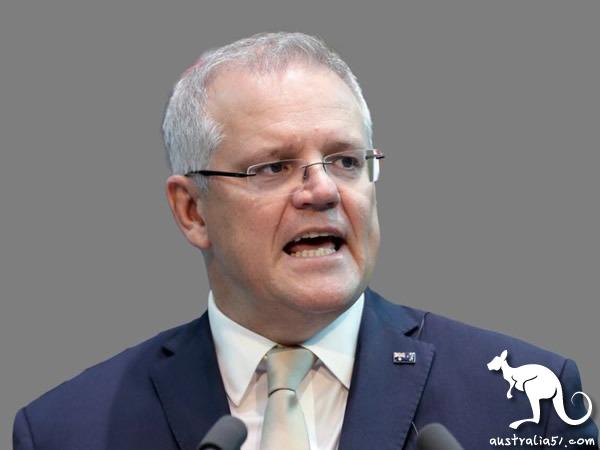
Australian Prime Minister Morrison
Australia announced that it would provide about 10,000 Hong Kong SAR passport holders residing in Australia with the opportunity to apply for permanent residency when their current passports expire. This is one of Australia's initiatives in response to China's push for the Hong Kong version of the National Security Act.
This means that many Hong Kong passport holders may seek additional places to go, so Australia offers them additional visa options, Australian agent minister Ellen Tach (Alan Tudge) told Australian Radio Television Sunday (July 12).
However, he said, this is not automatically obtained, permanent residency applicants must pass character, national security and other tests, and then there are channels to apply for citizen..
Mr taci says there is now a greater risk of arbitrary arrest of democratic demonstration in hong kong, stressing that 137 applications have been received for a humanitarian asylum visa if one can prove that he is actually persecution,.
Australia also announced a moratorium on extradition agreements with Hong Kong. Australia believes that the Hong Kong version of the National Security Act may expose democratic supporters to political persecution.
On 9 July, China's Ministry of Foreign Affairs speaker Zhao Lijian responded to Australia's announcement of a moratorium on extradition agreements with Hong Kong and an extension of visas for Hong Kong residents in Australia, saying that Hong Kong's social order would be more stable after the implementation of the National Security Law, that the Australian side's statements and announced measures, that it violated international law and international norms, interfered in China's internal affairs, expressed its strong condemnation, and reserved that any consequences arising from rights, further response would be borne by the Australian side.
China's imposition of the "Hong Kong version of the National Security Law" in Hong Kong has triggered a fierce international backlash. Apart from Australia, the United Kingdom proposes to offer more immigration benefits such as the right to settle and naturalise to Hong Kong people holding British nationals overseas passports (BNO).
For its part, on June 29, the day before the adoption of the Hong Kong version of the National Security Act, Secretary of State Pompeo announced that it would cease the export of defence equipment and dual-use sensitive technology to Hong Kong. On the same day, the U.S. Department of Commerce announced the suspension of the special treatment granted to Hong Kong by the United States and assessed whether the treatment would be permanently cancelled.
A version of the Hong Kong Safe Harbor Bill (Hong Kong Safe Harbor Act) was introduced by the House and Senate to allow some Hong Kong residents to apply for asylum in the United States as second priority. Both houses of the United States parliament have also formally adopted the Hong Kong Autonomy Act, imposing mandatory "first-level sanctions" on Chinese officials and individuals who forcibly promote the controversial "Hong Kong version of the National Security Act" and undermine Hong Kong's autonomy.

